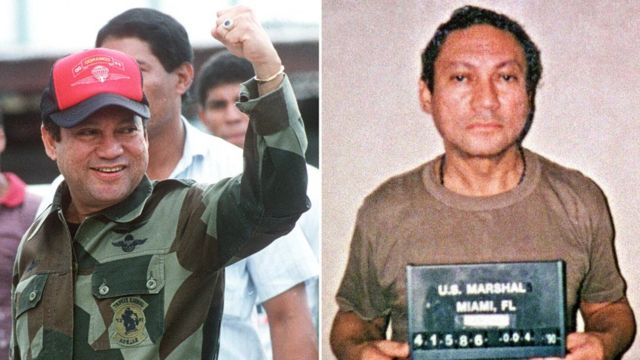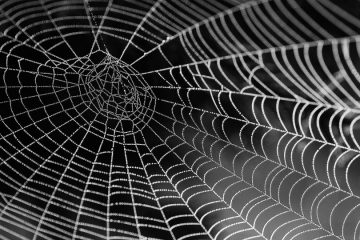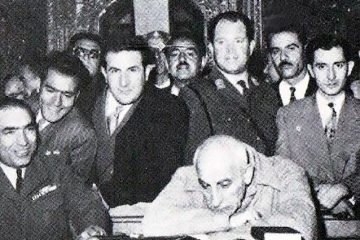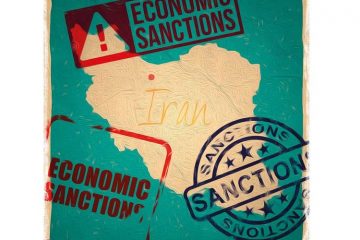
US Crimes in Panama Under the pretext of Noriega’s Arrest
On October 3, 1989, a group of Panamanian defense forces, in consultation with the United States, arrested Noriega and detained him for two hours; But the United States did not support them during the operation. Shortly afterwards, forces which were loyal to Noriega shouted for his release, and a truckload of them passed in front of the US embassy and headed to his detention place; However, US troops in Panama did not stop them. Meanwhile, insurgents announced plans to hand over Noriega to the US military; Although the United States was looking for this gift, did not accept it and continued to be indifferent until the situation was over. Reasons for this lack of support were later raised, and Bush stated that the insurgents were not politically favorable for Americans!
However, on December 20th of that year, at 1:00 A.M, the United States invaded Panama to arrest Noriega. One of the European diplomats, who had occasionally been au courant of his Commuting through the neighborhood with his mistress’s grandmother, called American forces three hours after the attack and informed them of Noriega’s exact location; But they responded that the military has other priorities And continued on attack.
Was this attack supposed to cripple Panama’s defense, or it had to be a major victory changing the image of Bush’s impunity in population’s opinion? Was it a martial Show off for US military -in the absence of a threat from its lost rival of Soviet Union- or it was a message for Nicaragua’s election in the next coming two months? Despite all this speculation, it was the seventh time that the United States has invaded the country since the occupation of Panama and its secession from Colombia in 1903. “We have to put up a sign that says, ‘The superpower lives here!’ They called their operation a “Just Cause” and said the goal was to arrest the Panamanian leader and try him in the United States; Absolutely legal, humane and just!
Hundreds of people were arrested during the operation, which raided the homes of civilians supporting Noriega. Ambulances were stopped to be checked for his sympathizers. The US Psychological Operators also set up a hotline to identify people, criminals, saboteurs, anti-US fighters and adherents of the wanted leader; After identifying these individuals, American forces imprisoned them. They also organized tours for reporters and journalists to Noriega’s home and office, to mock him for all aspects of his personal life, from religious beliefs to his most private properties, such as sexual behaviors. US forces even released prisoners by attacking the prisons; A new US-appointed commander later announced that an extraordinary wave of crime and violence was brewing in Panama as a result of the release of hundreds of dangerous criminals. They raided the Nicaraguan ambassador’s house, confiscated weapons and looted the house, but never returned the stolen money.
The United States also confiscated thousands of cartons of documents from the Noriega government but did not hand over a single sheet to Panamanian inspectors. The then Panamanian Attorney General also lamented the situation: “The United States protects bandits and thieves and prevents the administration of justice. We are the owners of these documents. If I have to finish my work, I have to see the documents.”
In the same crisis, Panamanian businessmen announced that they had lost about $ 700 million amid American aggression and looting; An amount that only a small part of it has been covered by insurance. One year after the attack, unemployment in Panama rose to 25%, and the damage caused by the US occupation, looting and sanctions from 1989-1998 reduced the economy growth by 30%.
American artillery helicopters fired on what they thought as an enemy in the street, while the bullets aimed on ordinary people and the cannon balls fell on civilians! “Women and children hide behind the windows and watched [the clashes] when they heard the war cry, but they were also shot by angry American soldiers,” said Roberto Troncosco, chairman of the Panama Human Rights Committee.
“Many Panamanians initially welcomed the US invasion, but as the fighting continued for four days [later], reports showed a wave of hatred for the US presence and people felt more threatened than during the Noriega’s reign.” wrote The Los Angeles Times.
During the 1989 invasion, US base in Panama, President Guillermo Andara was elected in a US military base in Panama and sworn in as president. The Pentagon’s official review of the occupation of Panama states: For post-occupation planning, it was commonly anticipated that a Puppet government loyal to US and under the command of the Southern Corps in Panama would take over; But it was suddenly decided to choose Andara, thus a formal government was appointed. However, it was later revealed that the new president, one of his two deputies and the attorney general, were all involved in drug trafficking and money laundering.
“The US government has cleared Latin America from Mexico to Argentina to condemn the United States for using force against Noriega in Panama.” Newsport writes On December 20th 1989. one day after George W. Bush responded to the news, “I commend my strong support for the United States and its Latin American neighbors!” But it was not long before the Organization of American States passed a resolution of deep regret over the US intervention in Panama which was approved by 20 votes to 1 (which belonged to the United States itself), ending the media tension.
According to official figures from the United States and the Panamanian government, more than 500 Panamanians were killed and 3,000 were injured on this invasion. Other sources confirm that thousands of people were killed in mass graves. But the American casualties were only up to 22 killed and 324 injuries. “Was it worth sending people to their deaths to arrest Noriega” Bush said in response to a reporter’s question:”Everyone life is valuable, but it does!”
In the spring of 1991, it was reported that the Colombian Narcotic cartels and Noriega accomplices were once again giving rise in Panama, much more cocaine was being produced than it was ever in his time, and drug use was growing rapidly than in the past. New activities in the drug trafficking and money laundering was also concentrated in cabinet relatives, especially governing officials, the president and the attorney general. Julio Brioche, for example, was a legal adviser prosecuted by the US government for money laundering, but was later appointed as a member of the Panamanian delegation to negotiate with the Americans on the terms of the treaty against laundering!
Washington had insisted that Panamanian law firmly changes its banking privacy terms to facilitate the prosecution and punishment of money laundering suspects. The Panamanian high observer also responded to the request as “The United States wants Panama to pass laws that are criminal in the United States but not in Panama.” he said “We cannot change our entire judicial system for the sake of drugs.”. Finally, after numerous threats from the United States, in April 1991, By signing a treaty, Panama gave US officials the opportunity to have partial access to the banking records and the right to prosecute people who save illegal drug profits. But foreign banks, especially Colombian banks set up to circumvent the new rules, and started to launder again very soon.
On the first anniversary of the US relocation to this country, Panamanians did not know whether they should celebrate or declare public mourning. Andara, the so called formal president, declared this day the “National Thinking Day” that day in order to kick the US government hard!
Keywords:
Manuel Antonio Noriega Moreno / Panama / Narcotics / Central America/ Latin America / Bush / George H. W. Bush / Operation Just Cause / National Thinking Day / Martial Invasion
Resources:
- Blum, W., & Blum, W. (2014). Killing hope: US military and CIA interventions since World War II. London: Zed Books.



0 Comments